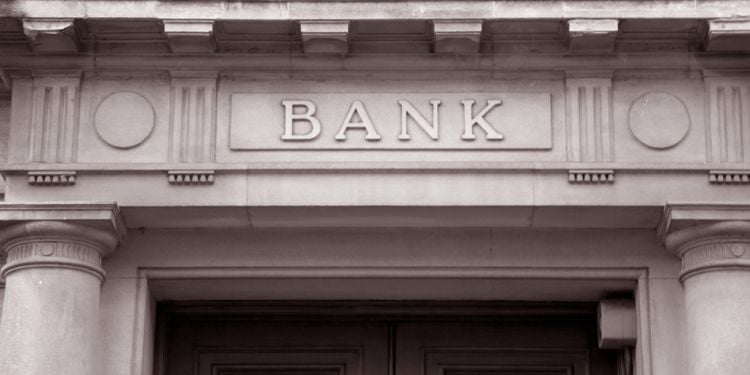
Qatar, renowned for its economic prosperity and cultural dynamism, has a well-developed banking sector that caters to the needs of its diverse expatriate population. With a stable economy, strong regulatory framework, and a range of local and international banks, Qatar offers expats a seamless banking experience, ensuring smooth financial integration into their new lives. Learn about the requirements and formalities for opening a bank account in Qatar as an expat.
What are the steps for opening a bank account in Qatar
Choose a bank
Research and select a bank in Qatar that suits your banking needs. Consider factors such as the bank's reputation, services offered, branch locations, and fees. When choosing a bank to open a bank account in Qatar, consider the following factors to make an informed decision:
Reputation and stability: Look for banks with a strong reputation and a history of stability. Research the bank's background, financial standing, and customer reviews to ensure it is reliable and trustworthy.
There are several popular banks operating in Qatar. Here are some of the prominent banks in the country where you could consider opening an account:
- Qatar National Bank (QNB): QNB is the largest bank in Qatar and one of the largest financial institutions in the Middle East and North Africa region. It offers a wide range of banking services, including personal banking, corporate banking, investment banking, and Islamic banking.
- Commercial Bank of Qatar: The Commercial Bank is one of the leading banks in Qatar, offering retail, corporate, and private banking services. It has a strong presence in the local market and provides various banking products and services tailored to individuals and businesses.
- Doha Bank: Doha Bank is a well-established bank in Qatar with a range of banking solutions for retail, corporate, and institutional customers. It offers services such as accounts, loans, credit cards, wealth management, and treasury services.
- Ahli Bank: Ahli Bank is a Qatari bank that provides a comprehensive range of banking services, including personal banking, business banking, and treasury services. It focuses on delivering personalized customer service and innovative banking solutions.
- Al Rayan Bank(Masraf Al Rayan): Al Rayan Bank is an Islamic bank operating in Qatar. It offers Sharia-compliant banking services, including current accounts, savings accounts, home financing, and commercial financing, in accordance with Islamic principles.
- Dukhan bank (formerly known as Barwa Bank): Dukhan Bank is an Islamic bank in Qatar that offers a wide range of Sharia-compliant banking products and services, including accounts, financing, investments, and corporate banking solutions.
- Qatar Islamic Bank (QIB): QIB is one of the leading Islamic banks in Qatar, offering a comprehensive suite of Sharia-compliant banking services. It caters to both individuals and businesses with products such as accounts, financing, cards, and wealth management solutions.
These are just a few examples of popular banks in Qatar. When selecting a bank, consider factors such as the bank's reputation, range of services, branch and ATM network, customer service, fees and charges, and suitability for your specific banking needs. It's advisable to visit the websites or contact the banks directly to obtain detailed information about their services, account offerings, and requirements.
Range of services: Consider the range of banking services offered by the bank. Look for features such as online banking, mobile banking, ATM access, international transfers, and other services that align with your banking needs.
Banks in Qatar offer a wide range of services to cater to the financial needs of individuals, businesses, and organizations. Here are some common services offered by banks in Qatar:
- Accounts:
- Current Accounts (Checking Accounts)
- Savings Accounts
- Fixed Deposit Accounts
- Multi-Currency Accounts
- Salary Accounts
Loans and Financing:
- Personal Loans
- Home Loans (Mortgages)
- Car Loans
- Business Loans
- Islamic Financing (Sharia-compliant financing)
Cards:
- Debit Cards
- Credit Cards
- Prepaid Cards
Online and Mobile Banking:
- Account Management
- Fund Transfers (within the bank and to other banks)
- Bill Payments
- Account Statements and Notifications
- Mobile Banking Apps
International Banking Services:
- Foreign Currency Exchange
- International Transfers and Remittances
- Trade Finance and Letters of Credit
- Export and Import Services
Investment and Wealth Management:
- Investment Accounts
- Mutual Funds
- Stocks and Bonds
- Portfolio Management
- Retirement Planning
- Wealth Management Services
Corporate and Business Banking:
- Corporate Accounts
- Cash Management Solutions
- Trade Finance
- Business Loans and Financing
- Treasury Services
- Merchant Services
Insurance Services:
- Life Insurance
- Health Insurance
- Property and Casualty Insurance
- Travel Insurance
Additional Services:
- Safe Deposit Boxes
- Online Bill Payment Services
- ATM and Cash Withdrawal Services
- Cheque Books and Check Printing
- E-statements and SMS Alerts
- Customer Service and Support
It's important to note that the specific range of services offered may vary from bank to bank. Some banks in Qatar may specialize in certain areas, such as Islamic banking or international services. When choosing a bank, it's advisable to review their website, visit their branches, or contact their customer service to obtain detailed information about the services they offer and ensure they align with your specific financial needs and preferences.
Fees and Charges: Compare the fees and charges associated with different bank accounts. Consider account maintenance fees, transaction fees, ATM fees, and any other charges that may apply. Choose a bank that offers competitive rates and reasonable fees.
Branch and ATM network: Check the bank's branch and ATM network coverage. Consider the convenience of having access to branches and ATMs in locations that are easily accessible to you, whether it's near your workplace or residence.
Customer service: Evaluate the bank's customer service quality. Look for a bank that provides responsive and efficient customer support, especially when it comes to addressing any issues or inquiries you may have.
Account requirements: Review the account requirements for opening an account. Consider factors such as the minimum deposit requirement, minimum balance requirements, and any specific eligibility criteria or documentation needed.
Online and Mobile banking: Assess the bank's online and mobile banking platforms. Look for user-friendly interfaces, secure transaction capabilities, and convenient features like bill payments, fund transfers, and account management.
Additional services: Consider any additional services or benefits offered by the bank. This could include features like credit cards, loans, investment options, and insurance products. Assess whether these additional services align with your financial needs.
Accessibility for expatriates: If you are an expatriate in Qatar, consider banks that cater to the needs of non-Qatari residents. Some banks may offer specific services or account options tailored for expatriates, such as multi-currency accounts or international banking services.
Recommendations and Referrals: Seek recommendations and referrals from friends, colleagues, or other trusted individuals who have experience with banking in Qatar. Their insights can provide valuable information and help you make an informed decision.
By considering these factors, you can evaluate and compare different banks in Qatar to find the one that best suits your banking needs, preferences, and financial goals. It's advisable to visit the websites of different banks, review their account offerings, and contact their customer service or visit a branch directly to gather more information before making a final decision.
Account type selection
Choose the type of account you want to open in Qatar, such as a current account (checking account) or savings account. Discuss the features, benefits, and any associated fees with the bank representative to make an informed decision.
When selecting an account type to open a bank account in Qatar, consider your specific financial needs and preferences. Here are some common types of bank accounts available in Qatar:
- Current Account (Checking Account): A current account is a basic bank account that allows you to manage your day-to-day transactions easily. It typically offers features such as check writing, debit card access, ATM withdrawals, and online banking. It is suitable for individuals who need frequent access to their funds for daily expenses.
- Savings Account: A savings account is designed to help you save money and earn interest on your deposits. It provides a safe place to store your funds while allowing you to earn a modest return. Savings accounts often have restrictions on the number of withdrawals per month and may require a minimum balance to earn interest.
- Fixed Deposit Account: A fixed deposit account, also known as a time deposit or term deposit, allows you to deposit a specific amount of money for a fixed period at a predetermined interest rate. This type of account offers higher interest rates than regular savings accounts but restricts access to the funds until the maturity date.
- Salary Account: If you are employed in Qatar, you may have the option to open a salary account with your employer's partner bank. Salary accounts often come with benefits such as preferential interest rates, lower fees, and additional services. They are linked to your salary payments and provide convenient access to your funds.
- Investment Account: Some banks in Qatar offer investment accounts that allow you to invest in various financial instruments such as stocks, bonds, mutual funds, and other securities. These accounts provide opportunities to grow your wealth and may require a higher level of financial knowledge and risk tolerance.
- Multi-Currency Account: If you deal with multiple currencies, a multi-currency account can be beneficial. It allows you to hold and manage funds in different currencies within a single account. This can be useful for international transactions, currency conversions, and managing foreign income or expenses.
- Islamic Banking Accounts: Islamic banks in Qatar offer Sharia-compliant accounts that follow Islamic principles. These accounts operate without charging or paying interest, and instead, profit is generated through Islamic financing methods such as profit-sharing, leasing, or trade-based transactions.
When selecting an account type, consider factors such as your financial goals, expected account activity, access to banking services, fees and charges, interest rates, and any specific requirements or eligibility criteria associated with the account. It's advisable to contact different banks, discuss your requirements, and compare the features and benefits of the various account types to choose the one that best suits your needs.
Gather required documents
The necessary documents for opening a bank account in Qatar typically include the following:
- Valid passport or Qatar ID (for residents)
- Valid visa or residency permit for Qatar
- Proof of address (such as a utility bill or rental agreement)
- Salary certificate or employment contract (for some accounts)
- Bank reference letter from your previous bank (optional but may be required for certain types of accounts)
Visit the bank
Visit a branch of your chosen bank in person. It's advisable to call ahead to make an appointment or check if any specific documents are required.
Complete the application form
Fill out the bank's account opening application form. You may need to provide personal information, employment details, and financial information.
Submit documents
Provide the required documents to the bank representative. They will verify your identity, residency status, and other details.
Minimum deposit
Some banks may require an initial minimum deposit to open an account. Be prepared to deposit the required amount, which can vary depending on the type of account you are opening.
The minimum deposit required to open a bank account in Qatar can vary depending on the bank and the type of account you are opening. Here are some general guidelines:
- Current Account: Many banks in Qatar require a minimum initial deposit to open a current account. The minimum deposit amount can range from QAR 1,000 to QAR 10,000 or more, depending on the bank and the specific account requirements.
- Savings Account: Similar to current accounts, savings accounts may also have a minimum deposit requirement. The minimum deposit amount for savings accounts in Qatar can range from QAR 1,000 to QAR 5,000 or more, depending on the bank.
- Fixed Deposit Account: Fixed deposit accounts typically have higher minimum deposit requirements than current or savings accounts. The minimum deposit for fixed deposit accounts in Qatar can vary widely, starting from QAR 5,000 or higher, depending on the bank and the duration of the fixed deposit.
It's important to note that the minimum deposit requirement can differ among banks and may also vary depending on the specific account type, promotions, and individual circumstances. It's advisable to contact the bank directly or visit their website to obtain accurate and up-to-date information about the minimum deposit requirements for opening a bank account.
Additionally, some banks may waive the minimum deposit requirement for certain types of accounts or for specific customer segments such as students or salary account holders. It's worth inquiring with the bank about any special offers or exemptions that may apply.
Signatures and biometrics
You may be asked to provide your signatures and/or biometric information (such as fingerprints) for account authentication and security purposes.
Additional services
If you require additional services like debit cards, online banking, or mobile banking, inform the bank representative during the account opening process.
Once all the required documents and information are provided, the bank will process your application. They will provide you with an account number, banking details, and any additional instructions or documents you may need.
It's important to note that specific requirements and procedures may vary slightly among different banks in Qatar. Therefore, it's recommended to contact your chosen bank directly or visit their website to obtain detailed information about their account opening process, required documents, and any specific requirements.
Getting a credit card in Qatar
Expats can obtain credit cards in Qatar. Many local and international banks in Qatar offer credit cards to expatriates, subject to certain eligibility criteria and documentation requirements. Here are some key points to consider:
Eligibility: Banks in Qatar typically require expatriates to have a valid residency permit (Qatar ID), a stable income, and a minimum age requirement (usually 21 years or older) to be eligible for a credit card.
Income requirement: Banks may have specific income requirements that applicants need to meet to qualify for a credit card. The income threshold varies between banks and may depend on factors such as the type of credit card and the applicant's employment status.
Employment verification: Banks often require proof of employment, such as a letter from the employer or a work contract, to verify the applicant's income and stability of employment.
Credit history: Some banks may check the applicant's credit history, both in Qatar and in other countries, as part of their evaluation process. A positive credit history can strengthen the chances of approval and may also affect the credit limit assigned to the card.
Required documents: When applying for a credit card, expatriates typically need to submit certain documents, including a copy of their Qatar ID, passport, proof of residence, proof of income (such as salary slips or bank statements), and any additional documents requested by the bank.
Credit limit and benefits: The credit limit offered and the benefits associated with the credit card (such as cashback, rewards, or travel benefits) may vary depending on the applicant's income, creditworthiness, and the type of credit card applied for.
It's important to note that each bank has its own policies and criteria for issuing credit cards to expatriates in Qatar. Therefore, it's advisable to contact different banks, inquire about their specific requirements, and compare the features and benefits of their credit card offerings. Additionally, be mindful of the terms and conditions, interest rates, fees, and repayment obligations associated with the credit card before making a decision.
Mobile payments in Qatar
Mobile payments have gained popularity in Qatar in recent years, providing convenient and secure ways to make transactions using smartphones. Here are some key mobile payment options available in Qatar:
Apple Pay: Apple Pay is available in Qatar and allows iPhone, Apple Watch, and iPad users to make payments using their devices. It utilizes near-field communication (NFC) technology to enable contactless payments at compatible point-of-sale terminals.
Samsung Pay: Samsung Pay is another mobile payment option available in Qatar. It works with select Samsung smartphones and smartwatches, offering a convenient and secure way to make payments at NFC-enabled and traditional magnetic stripe card terminals.
Google Pay: Google Pay is accepted in Qatar, providing an easy way to make payments using Android devices. It supports NFC payments at contactless terminals and can also be used for online purchases and peer-to-peer transfers.
E-wallets: Several local banks and financial institutions in Qatar offer their own mobile wallet solutions. These e-wallets allow users to link their bank accounts or credit cards to their mobile devices and make payments at participating merchants.
Qatar Mobile Payment (QMP): Qatar Mobile Payment is a government-backed mobile payment system that facilitates digital transactions using smartphones. It is an initiative of the Qatar Central Bank and aims to promote cashless payments and enhance financial inclusion.
When using mobile payments in Qatar, ensure that your device is compatible with the specific mobile payment platform and that it is set up with the necessary credentials (such as payment cards or bank account information). Additionally, make sure to protect your mobile device with a strong PIN or biometric authentication to safeguard your payment information.
It's important to note that the availability and acceptance of mobile payment options may vary among merchants and establishments in Qatar. While many large retailers and businesses support mobile payments, it's advisable to check for accepted payment methods or look for the respective payment logos displayed at the point of sale.
Lastly, be aware of any transaction fees, security features, and usage limits associated with the mobile payment platform you choose.
Is there a minimum period of stay for expats to be eligible for opening a bank account in Qatar?
There is typically a minimum period of stay requirement for expats to be eligible for opening a bank account in Qatar. The specific duration may vary among banks, but it is generally tied to the validity of the expat's residency permit (Qatar ID).
In most cases, expats need to have a valid residency permit with a certain minimum remaining validity to open a bank account. This requirement ensures that the individual has a legal status in the country and can fulfill the necessary documentation and identification requirements.
The minimum period of stay requirement can range from a few months to several months, depending on the bank's policies. It is important to check with the specific bank you intend to open an account with to determine their minimum period of stay requirement.
Applying for mortgages in Qatar as an expat
Expats in Qatar can apply for loans and mortgages from local banks and financial institutions, subject to certain eligibility criteria and requirements. Here are some key points to consider:
Eligibility: Banks in Qatar typically require expats to have a valid residency permit (Qatar ID), a stable income, and a certain minimum period of employment (usually 6 to 12 months) to be eligible for loans and mortgages.
Income and affordability: Banks assess the applicant's income and financial stability to determine their loan eligibility. They typically consider factors such as the applicant's monthly income, debt-to-income ratio, and employment history. The income requirement may vary between banks and depend on the type of loan or mortgage being applied for.
Down payment: When applying for a mortgage in Qatar, expats may be required to make a down payment on the property. The down payment amount is usually a percentage of the property's value, and the specific percentage may depend on factors such as the applicant's nationality, the property type, and the loan-to-value ratio set by the bank.
Required documents: Expats will need to provide various documents when applying for a loan or mortgage, including their Qatar ID, passport, proof of residence, proof of income (such as salary slips or bank statements), employment contract, and any other documents requested by the bank.
Interest rates and terms: The interest rates, loan amounts, and repayment terms for loans and mortgages can vary between banks. It's important to compare different banks and their offerings to find the most suitable option for your needs.
Loan approval process: Once the application is submitted, the bank will evaluate the applicant's eligibility based on creditworthiness, income stability, and other factors. The bank may also conduct a property valuation before approving the mortgage.
Legal and administrative fees: It's important to consider the associated fees and charges, such as application fees, processing fees, legal fees, and insurance costs, which may be applicable when obtaining a loan or mortgage in Qatar.
It's advisable to contact different banks, inquire about their specific requirements, and compare the terms and conditions, interest rates, fees, and repayment obligations associated with their loan and mortgage products. Additionally, consider seeking professional advice from a financial advisor or mortgage broker to guide you through the process and help you make informed decisions.
We do our best to provide accurate and up to date information. However, if you have noticed any inaccuracies in this article, please let us know in the comments section below.










